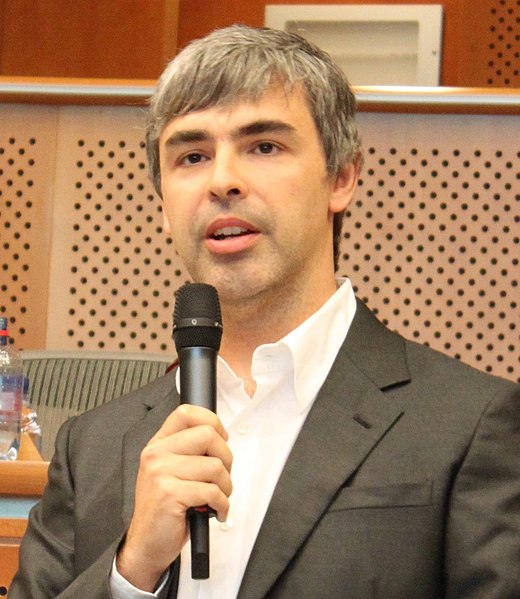Talent is Not Enough: The Power of Commitment in Leadership
Talent vs. Commitment: Why Commitment is Key to Your Success
Leadership development is a lifelong journey that involves constant growth and improvement. It requires a unique blend of skills, qualities, and traits that differentiate effective leaders from average ones. While talent is often the first thing that comes to mind when thinking about leadership potential, it’s no longer enough to stand out in today’s competitive environment.
Talent may give you a head start, but it’s not the only factor that determines your success. The older you get, the more you’ll realize that everyone around you has talent. Your colleagues, peers, and even competitors may have the same or more talent than you do. That’s why talent alone is no longer sufficient to succeed. It’s time to raise the bar and recognize the power of commitment.
Commitment is the difference between those who succeed and those who fall behind. It’s what sets apart those who achieve their goals from those who struggle to make progress. Commitment is what drives you to pursue your vision, push through obstacles, and stay focused on your goals. It’s what enables you to turn your talent into a competitive advantage.
In this article, we’ll explore the concept of talent and its limitations, the rise of talent all around, the power of commitment, and how to develop it. We’ll also discuss the benefits of commitment, both personally and professionally. Lastly, we’ll conclude by emphasizing the importance of showing up on purpose and committing to your growth as a leader.
Talent may be natural, but commitment is a choice. The question is, will you choose to commit?
Talent – Not Enough Anymore
Talent is often defined as a natural aptitude or skill. It’s what you’re naturally good at and comes easily to you. It’s what sets you apart from others and gives you a competitive advantage. However, while talent is important, it has its limitations.
One limitation of talent is that it’s often situational. What worked for you in one situation may not work in another. For example, if you’re naturally good at math, that doesn’t necessarily mean you’ll excel at creative writing. Your talent may give you an edge in certain areas, but it doesn’t guarantee success in every situation.
Another limitation of talent is that it can lead to complacency. When things come easily to you, it’s easy to become complacent and take things for granted. You may not feel the need to push yourself or challenge yourself to improve. This can lead to stagnation and ultimately, failure.
Finally, talent alone is not enough to achieve your goals. It’s just one piece of the puzzle. To succeed, you need to have a strong work ethic, resilience, and a willingness to learn and grow. Talent may give you a head start, but it’s not enough to sustain success in the long run.
In today’s competitive environment, the bar has been raised. Everyone around you has talent, and it’s no longer enough to rely solely on your natural abilities. You need to push yourself to develop new skills, acquire new knowledge, and build new relationships. You need to go above and beyond what’s expected of you to stand out and make an impact.
In the next section, we’ll discuss the rise of talent all around and how it impacts your leadership development.
Rise of Talent All Around
In today’s hyper-connected world, the competition for jobs, opportunities, and recognition has never been fiercer. The rise of talent all around means that there are more people than ever before who have the same or more talent than you do. This makes it even more challenging to stand out and succeed in your career.
The rise of talent all around is not just limited to your immediate peers and colleagues. It’s a global phenomenon that affects all industries and professions. Advances in technology and communication have made it easier for talented individuals to connect, collaborate, and compete on a global scale.
As a result, the playing field has been leveled, and the bar has been raised. To succeed in today’s environment, you need to go above and beyond what’s expected of you. You need to develop new skills, acquire new knowledge, and build new relationships. You need to be proactive in your approach to your career and take ownership of your growth and development.
The rise of talent all around also means that you need to be more strategic in your career planning. You can no longer rely on your natural abilities to carry you through. You need to be intentional about the skills you develop, the experiences you seek out, and the relationships you cultivate.
However, the rise of talent all around is not just a threat to your career; it’s also an opportunity. By embracing the challenge, you can push yourself to become a better version of yourself. You can use the competition to motivate you to reach new heights, develop new skills, and achieve new levels of success.
In the next section, we’ll discuss the power of commitment and how it can help you turn your talent into a competitive advantage.
Power of Commitment
While talent is important, commitment is what separates the best from the rest. Commitment is the willingness to do whatever it takes to achieve your goals. It’s the determination to push through obstacles, overcome challenges, and stay focused on your vision.
Commitment is what allows you to turn your talent into a competitive advantage. It’s what enables you to refine your skills, develop new ones, and become a better version of yourself. Without commitment, talent is wasted. It never reaches its full potential and is never refined.
Commitment also plays a crucial role in your leadership development. As a leader, you need to be committed to your vision, your team, and your organization. You need to be willing to go above and beyond what’s expected of you to inspire and motivate your team to achieve their goals.
The relationship between talent and commitment is not a one-way street. Talent can inspire commitment, but commitment can also enhance talent. When you’re committed to your goals, you’re more likely to push yourself to develop new skills, seek out new experiences, and build new relationships. This, in turn, can enhance your natural abilities and make you even more effective in your role.
Commitment is a choice. It’s not something that comes naturally to everyone, but it’s something that can be developed and strengthened over time. It requires a willingness to embrace discomfort, push through obstacles, and stay focused on your goals. It’s about showing up on purpose every day and doing the work required to achieve your vision.
In the next section, we’ll discuss how to develop commitment and turn it into a habit.
Choice to Commit
While commitment is a powerful force, it’s not always easy to develop. It requires a conscious decision to show up on purpose and do the work required to achieve your goals. It’s about making a choice to prioritize your growth and development over short-term gratification.
The nature of commitment is that it requires sacrifice. You may need to sacrifice time, energy, or comfort to achieve your goals. You may need to push through discomfort, take risks, and face failure to reach your full potential. However, the benefits of commitment far outweigh the costs.
Making a commitment starts with setting clear goals and defining your vision. What do you want to achieve, and why is it important to you? When you have a clear understanding of your goals and your motivation, it’s easier to make a commitment and stay focused on your vision.
Another key factor in developing commitment is accountability. When you’re accountable to someone else, you’re more likely to follow through on your commitments. This can take the form of a mentor, coach, or accountability partner who can provide feedback, guidance, and support as you work towards your goals.
Developing self-discipline and consistency is also critical in developing commitment. This means developing a routine and sticking to it, even when it’s difficult. It means prioritizing your goals and making them a non-negotiable part of your daily routine.
Finally, it’s important to acknowledge and overcome the obstacles that can get in the way of your commitment. This may include fear, self-doubt, or limiting beliefs. By recognizing and addressing these obstacles, you can develop a stronger commitment and achieve your goals.
The good news is that commitment is a skill that can be developed and strengthened over time. By making a conscious choice to prioritize your growth and development, setting clear goals, seeking out accountability, and developing self-discipline, you can turn commitment into a habit and achieve your full potential.
In the next section, we’ll discuss the benefits of commitment, both personally and professionally.
How to Develop Commitment
Developing commitment requires a combination of mindset, skillset, and habit. It’s not something that can be developed overnight, but it’s a journey that’s worth taking. In this section, we’ll explore some practical strategies to develop commitment and turn it into a habit.
The Importance of Goals
The first step in developing commitment is to set clear goals. When you have a clear understanding of what you want to achieve, it’s easier to make a commitment and stay focused on your vision. Make sure your goals are specific, measurable, achievable, relevant, and time-bound (SMART).
Self-Discipline and Consistency
Developing self-discipline and consistency is essential to building commitment. This means developing a routine and sticking to it, even when it’s difficult. It means prioritizing your goals and making them a non-negotiable part of your daily routine. Building good habits is key to developing self-discipline and consistency.
The Role of Accountability
Accountability is a critical factor in developing commitment. When you’re accountable to someone else, you’re more likely to follow through on your commitments. Find a mentor, coach, or accountability partner who can provide feedback, guidance, and support as you work towards your goals.
Overcoming Obstacles to Commitment
Developing commitment requires addressing the obstacles that can get in the way. This may include fear, self-doubt, or limiting beliefs. Recognize and address these obstacles by developing a growth mindset, practicing self-compassion, and reframing your thoughts to focus on solutions rather than problems.
Celebrating Small Wins
Celebrating small wins along the way can help you stay motivated and committed. Set milestones and celebrate when you achieve them. This can help you stay focused on your long-term goals while recognizing the progress you’ve made along the way.
Developing commitment is not always easy, but the benefits are worth the effort. By setting clear goals, developing self-discipline and consistency, seeking out accountability, overcoming obstacles, and celebrating small wins, you can develop a strong commitment and achieve your full potential.
In the next section, we’ll discuss the benefits of commitment, both personally and professionally.
Benefits of Commitment
Developing commitment is not just about achieving your goals; it’s about becoming a better version of yourself. Commitment has far-reaching benefits that extend beyond your professional life. In this section, we’ll explore the benefits of commitment, both personally and professionally.
Professional Growth
Developing commitment can have a significant impact on your professional growth. It can help you become more focused, productive, and efficient in your work. You’ll be more likely to take on new challenges and seek out opportunities for growth and development. This, in turn, can lead to increased recognition, promotions, and job satisfaction.
Personal Growth
Commitment also has a positive impact on your personal growth. By developing commitment, you’ll become more self-aware, confident, and resilient. You’ll be better equipped to handle setbacks and challenges in all areas of your life. You’ll also be more likely to maintain positive relationships, cultivate new ones, and achieve a better work-life balance.
Leadership Development
Commitment is a critical factor in leadership development. As a leader, you need to be committed to your vision, your team, and your organization. You need to be willing to go above and beyond what’s expected of you to inspire and motivate your team to achieve their goals. Developing commitment can help you become a more effective leader by setting an example for others to follow.
In addition to these benefits, developing commitment can also improve your overall well-being. By prioritizing your growth and development, you’ll be more fulfilled and satisfied with your life. You’ll have a sense of purpose and meaning that extends beyond your professional life.
Commitment is a powerful force that can have a significant impact on your life. By developing commitment, you’ll be better equipped to achieve your goals, both personally and professionally. You’ll become a better version of yourself and inspire others to do the same. Show up on purpose, make a commitment, and unlock your full potential.
Choose Commitment: Unlock Your Full Potential as a Leader
In today’s competitive environment, talent is no longer enough to succeed. While talent may give you a head start, it’s commitment that separates the best from the rest. Commitment is the willingness to do whatever it takes to achieve your goals. It’s the determination to push through obstacles, overcome challenges, and stay focused on your vision.
Developing commitment is a choice. It requires a conscious decision to prioritize your growth and development over short-term gratification. It requires setting clear goals, developing self-discipline and consistency, seeking out accountability, and overcoming obstacles. The benefits of commitment extend beyond your professional life and include personal growth, leadership development, and overall well-being.
As a leader, it’s important to lead by example and show your team the power of commitment. By committing to your vision, your team, and your organization, you’ll inspire and motivate others to do the same. By developing commitment, you’ll become a more effective leader and achieve greater success in your career.
In conclusion, talent may be normal, but commitment is rare. Show up on purpose, make a commitment, and unlock your full potential. Remember, the choice to commit is yours. Choose wisely.






